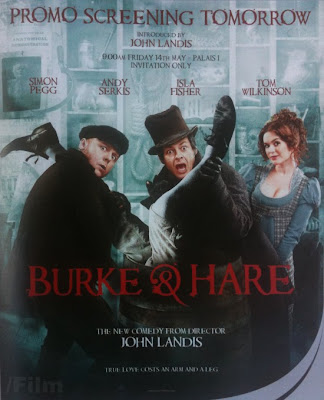Don’t you love Mack the Knife? I do. I’ve added Bobby Darin’s version of the song to nearly every cd I’ve burned. Imagine my surprise when I learned that Mack the Knife has it’s roots in England . . . . . The character of Macheath, later to become Mack the Knife, first appeared in The Beggar’s Opera by John Gay (1685-1732). The Beggar’s Opera, a comic ballad opera, took London by storm with it’s portrayal of the lower-class criminals satirizing the government and upper-class society. The main character of The Beggar’s Opera is a swashbuckling thief called Macheath who is polite to the people he robs, shuns violence, and shows impeccable good manners while cheating on his wife. The character is usually understood as partly a satire of Sir Robert Walpole, a leading British politician of the time. The Beggar’s Opera was a success from its first production in 1728, and continued to be performed for many years. It was the first musical play produced in colonial New York and legend has it that George Washington enjoyed it very much.
The play was so popular that it prompted Hogarth to fashion a painting upon it. Here is the description of the above painting from the Tate Britain website: “Between 1728 and 1731 Hogarth painted numerous versions of a climactic scene from John Gay’s The Beggar’s Opera, the great theatrical sensation of the period. Hogarth concentrated on a scene set in Newgate prison in which the play’s leading character, a condemned highwayman called Captain Macheath, is shown at the centre of a tug-of-love. The characters of Lucy Lockit and Polly Peachum, both of whom believe themselves married to Macheath, plead with their fathers – respectively a corrupt prison-warden and a crooked lawyer – to set him free. In both versions of A Beggar’s Opera displayed here, Hogarth included the stage trappings and protagonists of the theatrical environment in which Gay’s work was first staged. An elaborate curtain hangs over the proceedings, and Hogarth paints recognisable portraits of such actors as Lavinia Fenton (dressed in white), who famously played Polly Peachum. Furthermore, Hogarth depicts the most fashionable members of the theatre audience sitting on the stage, as was commonplace at this time.”
But back to the song . . . . . the much covered popular tune (Armstrong, Fitzgerald, Darin, Sinatra, Buble, et al) was composed by Kurt Weill with lyrics by Bertolt Brecht for their music drama Die Dreigroschenoper, or, as it is known in English, The Threepenny Opera – based on The Beggar’s Opera. It premiered in Berlin in 1928 and the song became a popular standard. “Mack the Knife” was introduced to the United States hit parade by Louis Armstrong in 1956, but the song is most closely associated with Bobby Darin, who recorded the song in 1958 and won Record of the Year in 1959.
Kurt Weill’s widow, Lotte Lenya, was the star of both the original 1928 German production and the 1954 Blitzstein Broadway version and she happened to be present in the studio during Armstrong’s recording. He spontaneously added her name to the lyrics, which already named several of Macheath’s female victims. All the other women’s names, Suky Tawdry, Jenny Diver, Lucy Brown, etc., appear in the original German version.
You can watch a classic video of Bobby Darin singing Mack The Knife here.




_before_1869.jpg)






